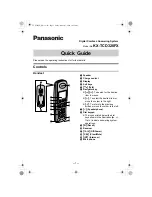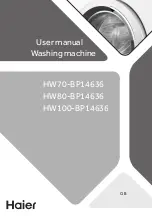
4
3
1
2
A
B
W1662-
○○○×□□□□
T
綿糸の場合
For cotton
threads
ウーリー糸の
標準位置
For woolly
threads
スパン・テトロン糸
の標準位置
For spun/polyester
threads
4
3
1
1
1
C
C
C
3
3
4
4
効かさない
Ineffective
(3)
(2)
(1)
矢印(裏面)
( Arrow on the
reverse side )
矢印(裏面)
( Arrow on the
reverse side )
矢印(裏面)
( Arrow on the
reverse side )
図 25
Fig.25
針糸繰りと針糸受けの調節
Adjusting the needle thread take-up and the
needle thread guard
注意
CAUTION
針糸受けの調節を行う時は、必ずミシンの電源スイッチを切
り、電源プラグをコンセントから抜いて、専門技術者が行ってくだ
さい。
Always turn off the power, unplug the machine and then
authorized techhnicians are allowed to adjust the needle thread
guard.
W1662-
○○○
×
□□□□
T
( 柔らかい縫い目 ) の場合
右図を参照して、針糸繰りブラケットの合いマーク
A
と針糸繰り
1
の合いマーク
B
が図の位置になっていることを確認してくださ
い(刻印矢印
C
は下向き)。図の位置になっていない場合はネジ
2
とネジ
3
を緩めて、針糸繰りを上又は下に動かして調節し、ネジ
2
、
3
を締めてください。
ネジ
3
を緩めて、針糸受け
4
を使用する糸の種類に合った標準位
置に合わせ、ネジ
3
を仮締めしてください。
●糸受け
4
を上に動かすと針糸ループが大きくなります。
●糸受け
4
を下に動かすと針糸ループが小さくなります。
適当な針糸ループの大きさになるように針糸受け
4
を上又は下に動
かして調節し、ネジ
3
を締めてください。
(1) スパン糸など、若干の伸びがある場合
(2) 綿糸など、伸びのない糸で針糸ループが大きく倒れてしまう場合
(3) ウーリー糸など、伸びが大きく針糸ループが小さい場合
W1662-
○○○
×
□□□□
T
To produce soft stitches
With downward arrow
C
inscribed on needle thread take-up
1
(see
Fig. 25), check to see if alignment mark
A
on the needle thread
take-up bracket and alignment mark
B
on needle thread take-up
1
are positioned in place (see Fig. 24). If they are not, adjust each
position. Adjustments are made by loosening screws
2
and
3
,
and then moving needle thread take-up
1
up or down. After these
adjustments are made, tighten screws
2
and
3
.
Loosen screw
3
. Adjust needle thread guard
4
to the appropriate
position according to the type of thread being used (see the
illustration right). Tighten screw
3
temporarily.
●
To increase the size of the needle thread loop, turn needle
thread guard
4
upward.
●
To decrease the size of the needle thread loop, turn needle
thread guard
4
downward.
Move guard
4
up and down so that the needle thread loop is
formed properly.
Tighten screw
3
after this adjustment.
(1)In the case of the threads that are slightly stretchable, such as
spun threads
(2)In the case of the threads that are not stretchable, such as
cotton threads (The needle thread loop tends to be formed
large and lie down.)
(3)In the case of the stretchable threads, such as woolly threads
(The needle thread loop tends to be formed small.)
図 24
Fig.24
26
Summary of Contents for W1600 Series
Page 27: ...Threading diagram 21 13 Fig 13 For more stretchable thread...
Page 52: ...46...
Page 98: ...92...
Page 119: ...Diagrama de enhebrado 113 Fig 13 13 Para hilos m sel sticos...
















































